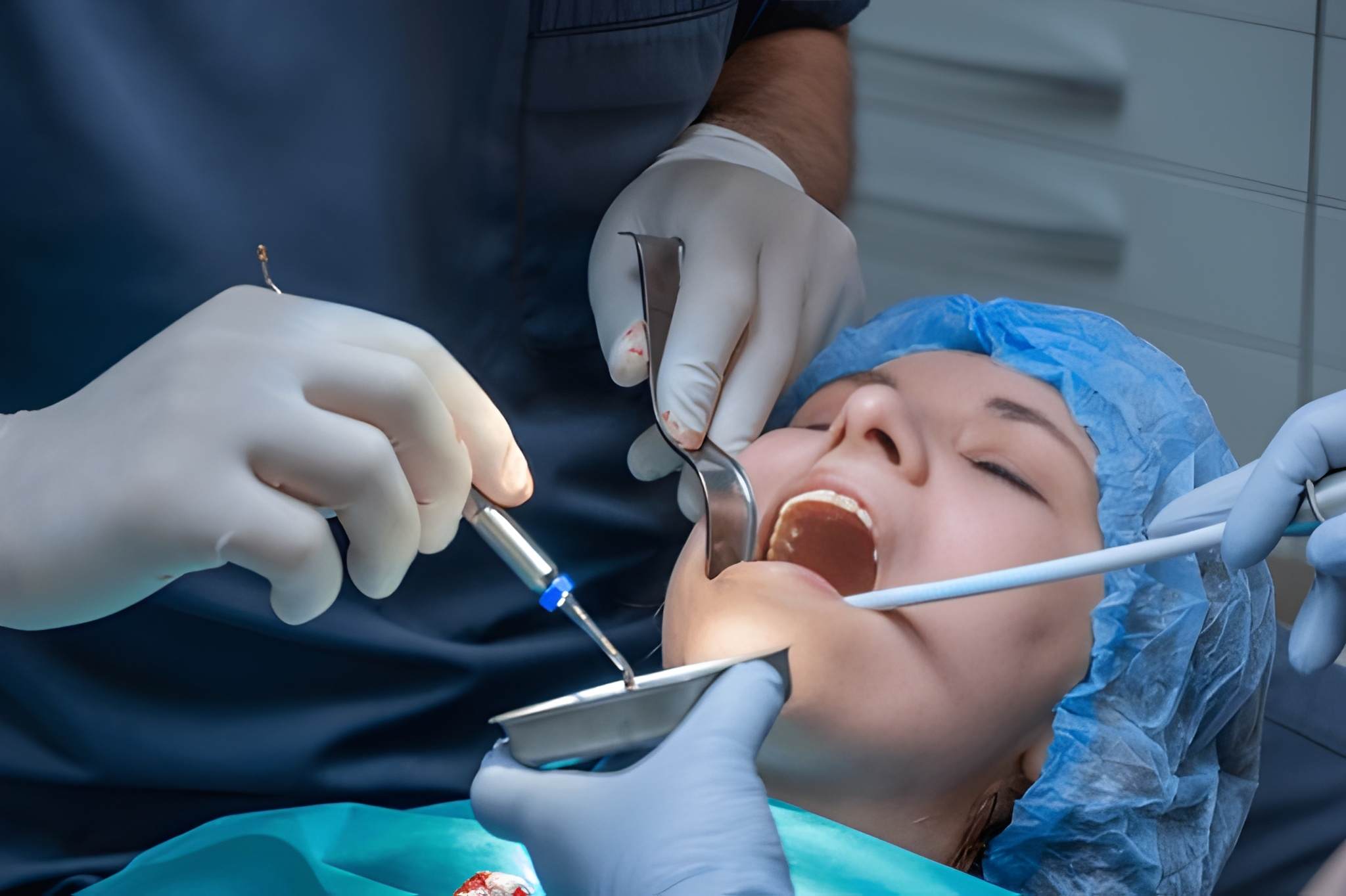When come a dental emergency what to do?. it can hurt, frighten, and confuse you. Knowing what to do in a dental emergency can be the difference between saving your teeth and gums until you see professional care. Whether you have a chipped tooth, an avulsed tooth, or a bad toothache, knowing what to do can avoid further damage and preserve your smile.
What Constitutes a Dental Emergency?
A lot of people ask, “what constitutes a dental emergency?” A dental emergency is any condition that needs to be treated immediately to alleviate pain, control bleeding, or salvage a tooth. Not every dental issue is an emergency — e.g., small chips or slight sensitivity can generally wait for an appointment. But if your situation is causing severe pain, uncontrolled bleeding, or swelling that won’t abate, it’s time to take action quickly.
Common dental emergencies are:
- Severe toothache or pain not relieved by medication
- Cracked or broken tooth
- Tooth knocked out
- Partially knocked-out (extruded) tooth
- Dental abscess or swelling of the jaw and face
- Lost or broken fillings, crowns, or bridges
- Soft tissue injury (tongue, lips, or gums) with bleeding that will not stop
Identifying these situations early allows you to react properly and prevent long-term damage.
Dental Emergency: What to Do Immediately
When confronted with a dental emergency, it’s important to remain calm and follow the right procedures before reaching the dentist. Here’s a general guide on dental emergency what to do for urgent situations:
- Call Your Dentist Immediately:
Most clinics, such as Dental Scotland, have emergency contact numbers or offer same-day appointments for patients in pain.
- Describe Your Symptoms Clearly:
Report to the dentist or receptionist exactly what occurred — the level of pain, seen bleeding, swelling, or chipped teeth.
- If It’s After Hours:
Seek an urgent care clinic or hospital emergency department if you cannot immediately get to a dentist.
- Manage Bleeding and Swelling:
Apply clean gauze to bleeding, and use a cold compress to minimize swelling.
Rapid action can significantly improve your opportunities for saving a tooth or avoiding infection.
Chipped Tooth Emergency Steps
One of the most frequent dental crises is a chipped or broken tooth. Even if it doesn’t hurt, neglecting it can cause infection or continued breaking.
Chipped Tooth Emergency Procedures:
Store the Broken Fragments: In case a fragment of your tooth has come off, rinse it and store it for presentation to your dentist.
- Warm Water Rinse: Gently clean the area to wipe out any dirt.
- Stop Bleeding: If gums bleed, press gently with gauze for 10 minutes.
- Cold Compress: Place a cold pack on your cheek to minimize swelling.
- Avoid Hard Foods: Don’t chew on the involved side until your dentist examines it.
- Pain Relief: Take ibuprofen or acetaminophen if you experience pain — never apply painkillers to your gums.
If your chipped tooth exposes nerve endings, it could become extremely sensitive. In this instance, visiting an emergency dentist near me at the earliest possible is important in order to avoid infection or damage.
How to Handle Knocked Out Tooth
A knocked out tooth, also referred to as an avulsed tooth, is among the most critical dental emergency. The quicker you respond, the more your natural tooth will have a chance to be saved. Here’s how to deal with knocked out tooth cases:
- Locate the Tooth Promptly:
Pick it up by the crown (the portion which remains in your mouth), but not by the root.
- Rinse Gently:
Rinse with clean water if dirty. Never scrub or brush away attached tissue.
- Try Reimplanting It:
If possible, gently place the tooth back into its socket, ensuring it faces the right direction. Do not force it.
- Keep It Moist:
If reinsertion isn’t possible, place the tooth in milk or saline solution. If those aren’t available, keep it in your mouth between the cheek and gums.
- Get to the Dentist Fast:
A knocked-out tooth has the highest chance of survival if reimplanted within 30–60 minutes.
Emergency dentists such as Dental Scotland may be able to save your own tooth if you get in fast enough with it still in place.
Unexpected Tooth Pain Relief Tips

Unexpected, severe tooth pain is another reason for emergency visits. This kind of pain can be due to decay, infection, or trauma. Here are some unexpected tooth pain relief tips to help ease discomfort until you can see a professional:
- Rinse with Warm Saltwater: Mix half a teaspoon of salt in a glass of warm water. Swish it around your mouth for 30 seconds to clean and soothe.
- Cold Compress: Place an ice pack outside for 10 minutes at a time to alleviate swelling.
- Painkillers: A short-term relief can be achieved with over-the-counter medication such as ibuprofen.
- Avoid Heat and Sugar: Avoid very hot, cold, or sweet foods that can make pain worse.
- Keep Cleanliness: Brushing gently around the painful area continuously to avoid bacterial accumulation.
In case the pain lasts more than 24 hours or becomes agonizing, call your emergency dentist near me right away to exclude infection or abscess.
Dealing with a Dental Abscess Prior to Reaching the Clinic
Dental abscess is a severe infection that takes place close to the root of a tooth or between gums. It leads to swelling, intense pain, and possibly fever. If untreated, the infection can progress to other parts of the body.
Prior to arriving at the clinic:
- Rinse with Saltwater: Repeat several times daily to relieve pain and extract pus.
- Avoid Popping It: Never attempt to squeeze or drain an abscess by yourself.
- Take Pain Relief: Take prescribed or OTC pain medication for pain.
- Apply Cold Compress: Deflate facial swelling outside.
Consulting a dentist right away is critical. The abscess may need to be drained, treated with antibiotics, or receive root canal treatment to eradicate infection totally.
Emergency Care for Dislodged Teeth
At times a tooth is not totally knocked out but gets extruded or displaced partially. It may occur after an injury or bite trauma.
In these situations:
- Avoid Wiggling or Touching the Tooth: This can compound the injury.
- Cold Compress: To stop pain and swelling.
- Pain Management: Use over-the-counter medications until you see your dentist.
- See a Dentist Right Away: The quicker it’s stabilized, the better the outlook.
Dealing with Broken Dental Restorations
Broken or lost fillings, crowns, or bridges can be painful or leave sensitive parts of the tooth exposed. Here’s how to deal with it safely before consulting a professional:
- Broken Filling: Fill the cavity with sugar-free gum or dental cement (which can be found at pharmacies).
- Dislodged Crown: Attempt to put it back in place gently with denture adhesive or dental cement — never glue.
- Same-Day Appointment: Schedule: A dentist can reattach or replace the restoration safely.
- Soft Tissue Injury: Gums, Lips, and Tongue
Inside the mouth, cuts or injuries will bleed profusely, but most can be treated with speedy first aid.
Proceed with the following steps:
- Rinse with Saltwater: Wash the area to avoid infection.
- Apply Gauze: Apply moist gauze or a tea bag to control bleeding.
- Cold Compress: Use externally to alleviate pain and swelling.
- Seek Emergency Help: If bleeding persists for over 15 minutes, go to your emergency dentist near me or the closest emergency room.
When It’s Not a True Dental Emergency
- Certain dental problems, although painful, are not necessarily urgent. They include:
- Mild toothache without swelling
- Small chips or cracks without pain
- Broken braces without bleeding
- Objects stuck between teeth (can usually be removed with floss)
- Minor mouth sores
Nevertheless, make an appointment for a dental visit soon before these small issues develop into emergencies.
Preparation Makes a Difference When Accidents Occur
Being prepared can save time and lives when accidents occur.
Maintain a dental emergency kit at home or in your vehicle with the following supplies:
- Gauze pads and cotton
- Small container with a lid (for knocked-out teeth)
- Saline solution
- Orthodontic wax or dental cement
- Painkillers
- Emergency dentist phone number
Understanding the dental emergency what to do will ensure you respond confidently in a crisis.
Prevention of Future Dental Emergencies
Although you can’t avoid every accident, you can minimize your risk by maintaining good habits:
- Keep Up Oral Hygiene: Brush twice a day and floss.
- Use a Mouthguard: Needed for contact sports to avoid chipped or knocked-out teeth.
- Avoid Chewing Hard Objects: Ice, pens, and hard candy may crack enamel.
- Routine Dental Visits: Regular visits to clinics such as Dental Scotland can detect weak areas, cavities, or gum issues before they turn into emergencies.
Research indicates that individuals who have regular dental checkups are 40% less likely to have emergency dental issues.
Conclusion: Leave Emergency Treatment to Dental Scotland
In emergency dental situations, responding quickly and being aware of dental emergency what to do can save your teeth, alleviate pain, and maintain oral health. From chipped tooth emergency steps to knocked out tooth, being prepared is the secret to improved results.
At Dental Scotland, expert emergency dentists provide compassionate, prompt care across multiple locations in Scotland. Whether it’s sudden tooth pain relief tips, advanced cosmetic solutions, clear aligners, dental implants, or routine family checkups, they are equipped to restore your smile safely and efficiently.
Your oral health deserves expert attention and with Dental Scotland, you’re never alone in an emergency.





